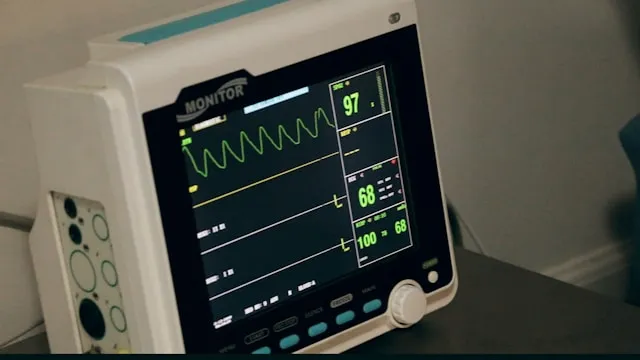Pediatric Cardiology is a branch of medicine that covers all aspects of heart diseases in infants, children, and adolescents. Parents may have some doubts or concerns related to Pediatric Cardiology. To answer those doubts, we had a conversation with Dr. Amit Misri.  Dr. Amit Misri is a Senior Consultant in Pediatric Cardiology at Medanta - The Medicity, Gurugram. He has over 15 years of rich experience in his field. He completed his Pediatric Cardiology Fellowship from Bangalore. He has been with Medanta The Medicity since its inception. His specialty interest includes intervention pediatric cardiology, fetal cardiology, fetal echocardiography, and other general congenital heart disorders.
Dr. Amit Misri is a Senior Consultant in Pediatric Cardiology at Medanta - The Medicity, Gurugram. He has over 15 years of rich experience in his field. He completed his Pediatric Cardiology Fellowship from Bangalore. He has been with Medanta The Medicity since its inception. His specialty interest includes intervention pediatric cardiology, fetal cardiology, fetal echocardiography, and other general congenital heart disorders.
Interview Questions Asked by Dr. Amit Misri on Pediatric Cardiology
Here are the questions which have been answered by an expert: Question 1. How common are congenital heart diseases? How can parents suspect whether the child is suffering from such conditions or not?Answer. At this point, we don't have specific data as far as the Indian population is concerned. But if you correlate this with all the literature that is present, we have 8-10 children per one thousand live birth who are suffering from heart conditions. Out of these 4-, 5 babies may have some sort of a critical congenital heart disease that needs early intervention. The rest may manifest later in life. So this was a rough idea of how many children are born with congenital heart diseases. Parents can suspect these disorders by monitoring the symptoms. The symptoms may include breathing difficulty or feeding difficulty. The other most common symptom is a synopsis or the blueness on the nails or lips of the baby. Apart from these, excessive sweating, not gaining weight properly or other recurrent respiratory tract infections which are not interpreted to some other diseases are some indicators. If you move to a slightly older age group like toddlers, then the symptoms would be breathlessness. They may complain of getting tired during physical activities. Also, they may have chest pain or loss of consciousness. These are some symptoms that may give you the clue that the child may have some heart disorders. Question 2. Can congenital heart disease be detected during the period of fetal development or at any stage pre-childbirth?Answer. With the advancement in technology, it is now possible to detect any congenital heart diseases during fetal life. We usually tend to do the fetal echocardiography between 18 to 20 weeks of pregnancy. At this point the heart of the baby is fully developed, so we can monitor the functioning of the baby's heart. If in some fetuses the congenital heart diseases are very severe or will not survive after birth, we recommend terminating the pregnancy. Related read: Hole in Heart - Causes, Symptoms & TreatmentQuestion 3. Experts believe that the concept of 3D printing will prove to be very helpful in Pediatric cardiology. What are your views on such evolving technologies and their benefits?Answer. We have seen that technology is evolving in a geometrical progression over the last decade. We started with echocardiography, then a CT scan, and a cardiac MRI. All these have helped in diagnosing and treating heart disorders. The latest technology of 3D printing is also in that direction. It is going to add some benefits to the management of congenital heart disease. It is going to explain whether the surgery can be performed and what would be the best surgery for the specific heart disorder. It also helps us in interventional cardiology. It helps identify the right approach to access the particular defect. So 3D printing is going to be the next step in this direction, and we have already seen results in the form of managemental changes in taking the course of action in a particular case. Question 4. What kind of stigmas and misconceptions do you face from the end of guardians while treating a small child?Answer. Usually, there are a couple of stigmas. The first and most common concern in parents is a scar mark. Most parents are more concerned about scars that develop after the surgery. Some parents think that due to some deficiency in their child, the baby is suffering from such a disorder. The doctor needs to reassure us that in very few cases we can identify the cause of these diseases. We can't say that this problem is transferred from the mother or father. These diseases can be genetic, but most of the time doctors don't know the exact cause of that particular disorder. Question 5. How successful are interventional cardiac procedures in children? Does the catheter-based treatment of long-run benefits or is surgery better?Answer. The catheter-based treatment has come up a lot in the past few decades. As we have already mentioned, there is an increase in the success rate after the discovery of such advanced technology. If you compare the results of intervention before and after using the catheter interventions, the results are even better. There are some advantages of Catheter intervention like no need for bypass surgery, no scar, and only a 2-3 days stay in the hospital. If you talk about the long-term benefits, the results are amazing. Patients are more satisfied with this advancement. Question 6. What is the protocol you follow when you receive a pediatric heart emergency?Answer. Usually, we receive a pediatric heart emergency in the emergency room on the ground floor. After that, the junior consultant first assesses the patient and understands the level of emergencies and how critical the situation is. Depending on the assessment, we shift the baby to the pediatric cardiac ICU on the first floor of Medanta The Medicity, Gurgaon. Then we provide the basic treatment for stabilization and then we try to figure out what the cause of the cardiac abnormality is. Based on the findings, we decide whether this needs medical attention, catheter intervention, or surgery. There is teamwork among the Pediatric cardiac ICU, Pediatric cardiology, and Pediatric cardiac surgery. They find out which treatment method will be best for the patient. Based on this, they follow the protocols of the management and provide the best treatment to the patient. Question 7. Nearly 14.4 million children in India are affected by obesity. This may be a result of rapidly changing dietary habits and sedentary lifestyles. In light of increasing child obesity, what guidelines would you suggest to parents so that cardiovascular diseases in children can be avoided?Answer. This question should be asked every time because we are sitting on a time bomb. Obesity is already a huge problem in the western world and we are almost going on the same path. We have seen the prevalence of obesity increasing rapidly in our country. In the smart world, children are more attracted to mobile or laptops, which leads to avoidance of physical activities. Another reason for obesity in children is the fast-food diet. Obviously, this is increasing obesity and creating a problem. But we need to understand that obesity is the base over which different diseases can come over. Obesity can lead to hypertension, diabetes, and hormonal changes. So it is suggested to all parents that they should keep a check on their children's dietary habits. In many cases, we find that parents are busy with their professional lives and do not spend time with their kids. They just ask them to see some videos on mobile or laptop, so that they can get their own time and complete their work. But that is not the right practice. Try to have at least one meal together and that meal should be balanced. No outside food or fast food should be included. You can serve fast food once a week, but try to avoid it as much as you can. Encourage your child to play outside and avoid spending time on laptops or mobile phones. Make sure the child has an active and healthy lifestyle. Check out all the articles in #CrediTalk series here.About The Doctor
 Dr. Amit Misri is a Senior Consultant in Pediatric Cardiology at Medanta - The Medicity, Gurugram. He has over 15 years of rich experience in his field. He completed his Pediatric Cardiology Fellowship from Bangalore. He has been with Medanta The Medicity since its inception. His specialty interest includes intervention pediatric cardiology, fetal cardiology, fetal echocardiography, and other general congenital heart disorders.
Dr. Amit Misri is a Senior Consultant in Pediatric Cardiology at Medanta - The Medicity, Gurugram. He has over 15 years of rich experience in his field. He completed his Pediatric Cardiology Fellowship from Bangalore. He has been with Medanta The Medicity since its inception. His specialty interest includes intervention pediatric cardiology, fetal cardiology, fetal echocardiography, and other general congenital heart disorders. For a priority appointment or more information, contact us at +91 8010994994 or book an appointment with Dr. Amit Misri here
[button color="transparent_credi" size="medium" class = "custom_button" link="https://www.credihealth.com/doctor/amit-misri-pediatric-cardiologist/overview?utm_source=blog_article&utm_medium=bottom_button&utm_campaign=book_appointment" icon="" target="true"]Book Appointment [/button]
Reviewed by







